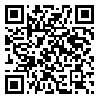BibTeX | RIS | EndNote | Medlars | ProCite | Reference Manager | RefWorks
Send citation to:
URL: http://jdc.tums.ac.ir/article-1-5208-en.html
2- Faculty of Psychology and Educational Sciences, Tabriz University, Tabriz, Iran; Faculty of Psychology and Educational Sciences, Ardakan University, Ardakan, Iran
3- Faculty of Psychology and Educational Sciences, Yazd University of Medical Sciences, Yazd, Iran
Background and Aim: Demand for cosmetic surgeries is very high, especially in Iran and is affected by economic, social and psychological variables. The aim of this study was to compare the beliefs about appearance, irrational beliefs and presentation of body mass in individuals who demand and who do not demand cosmetic surgery procedures.
Methods: This cross-sectional study was conducted at the Shahid Sadoghi Savaneh va Soukhtegi Hospital in Yazd in 2014. The questionnaires were given to 150 individuals who were looking for cosmetic surgery, of which 126 completed questionnaires were considered eligible for analyses.
Results: There was a statistically significant difference in BMI and beliefs about appearance between who demand cosmetic surgery and who do not (P=0.022, P=0.017, respectively). Those who were looking for cosmetic surgery had more irrational beliefs in comparison with who were not (P=0.017). Mean of irrational beliefs was higher in females than males, but there was no statistically significant difference in the means of beliefs about appearance among women and men (P=0.131). Also, the mean of beliefs about appearance and irrational beliefs scores both were higher among single people than married ones (P=0.049 and P=0.045, respectively).
Conclusion: Gender, BMI and cognitive characteristics, especially irrational beliefs regarding attractiveness played significant roles in the those demanding cosmetic surgery. We suggest that people consult dietitians and psychology counselors before making decisions about undergoing a cosmetic surgery procedure.
Received: 2017/01/3 | Accepted: 2017/01/3 | Published: 2017/01/3
| Rights and permissions | |
 |
This work is licensed under a Creative Commons Attribution-NonCommercial 4.0 International License. |





